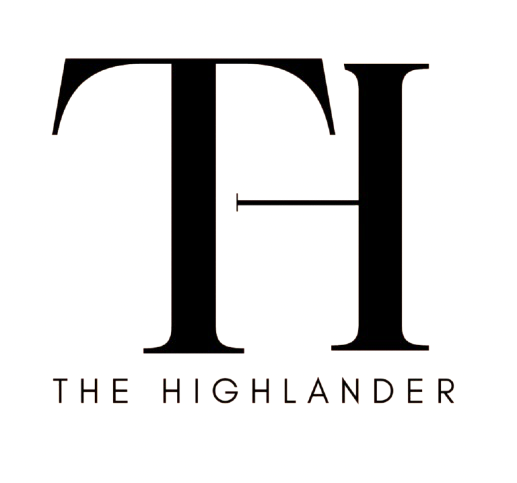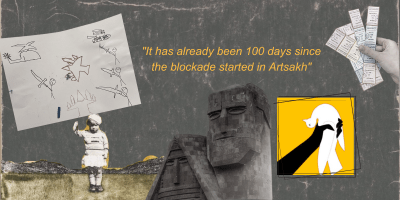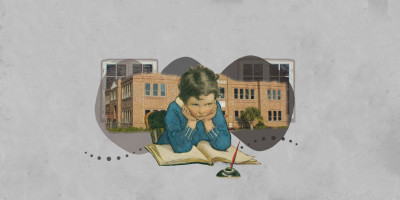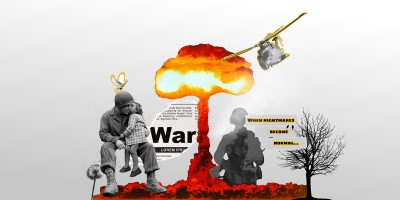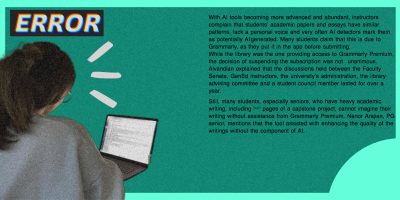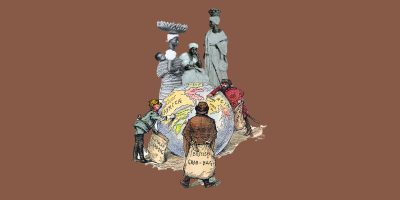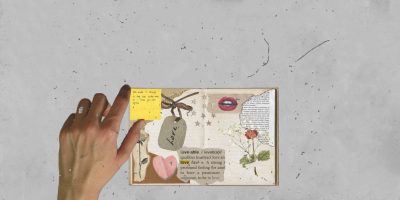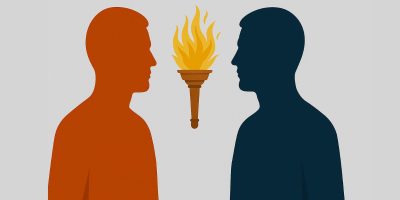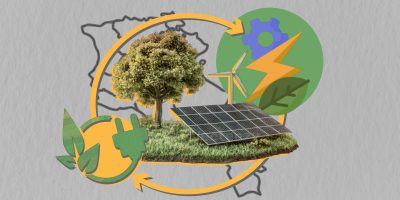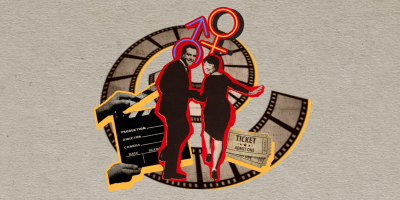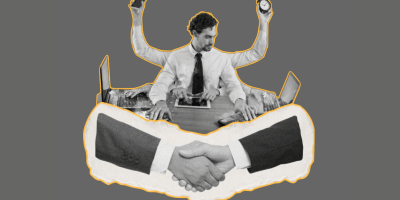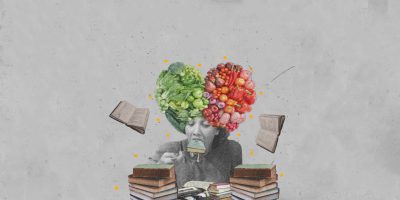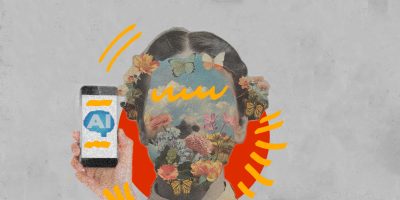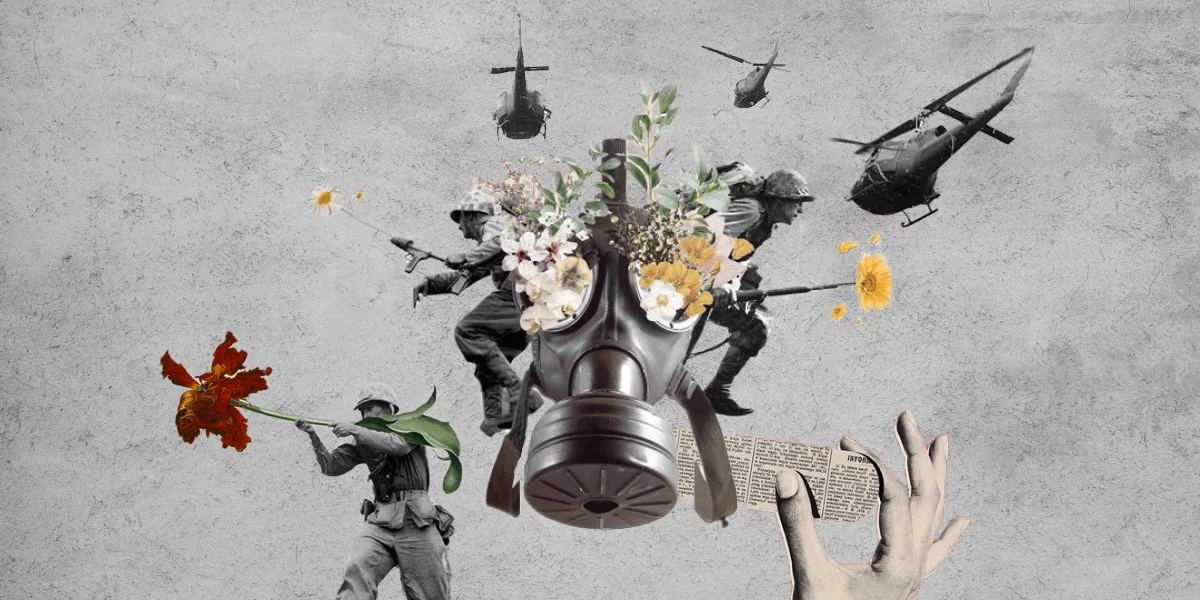
On September 27, Azerbaijan launched a full-scale military attack on the borders of Artsakh, initiating the second Artsakh war. Soon, as the Azerbaijani army advanced into the territory, the connection was cut off. A platoon scattered in different directions, six of whom, Arthur, Arman, Ruslan, David, Nikolay, and Arsen, continued their route together. On December 20, the first news about the boys’ return appeared on the Internet. After a long recovery, they have reintegrated into their everyday routine and kicked off their academic journey at AUA.
Arthur: The Tenacious Soldier
“I imagined what my family was feeling, and it gave me strength to move forward and tell them that I was alive, and they didn’t have to worry,” says Arthur Harutyunyan, ES Sophomore.
Arthur had served for only two months when the war started and never even held a weapon before. As the Azerbaijanis took control over Jabrayil, Arthur’s detachment soon moved toward Hadrout. The commander pretended to be wounded and left the battlefield, leaving more than a hundred inexperienced soldiers alone against the enemy’s numerous armies. “They kept telling us that they would send additional troops to rescue us, but they never did,” recalls Arthur.
The group had to act simultaneously in different directions: find shelter, feed themselves, and care for their wounded friends. “We had a food shortage, and once we had to share two tin cans between more than twenty people,” says Arthur.
Soon, they advanced deeper into the west and sheltered in Vank, one of Hadrout’s villages. “We found the residents’ documents and saw the village name.” Besides being a shelter, the house became their food storage, where they collected the goods from neighboring homes.
The artillery sounds always accompanied the food search, and once they calmed down, the boys realized the war was over. “They would shoot in the air for around an hour, and then silence fell,” explains Arthur.
Later, when the Azerbaijani troops began checking the abandoned village houses, the group of twenty were almost caught. They scattered into smaller groups, and six of them, including Arthur, left the house together. Their destination was the Iranian border, where they could catch a signal to make a phone call, but they stopped by another village. “I entered the village with Ruslan in search of food, and we were shocked to see huge storage there. We assume there was an Armenian military unit before,” says Arthur.
The availability of food and water allowed the boys to continue their route despite the winter cold and exhaustion. The lights from the Iranian side were barely visible because they went down the mountain, and the last glimmer of hope was fading away. However, success was just around the corner, and they caught a signal as they approached the Armenian border. On Dec. 20, 2020, the first news about the return of soldiers appeared on the Internet—the group of six was finally taken out with the Russian peacekeepers’ intervention.
“I was sitting on a hill with Ruslan and noticed smoke in the air. First, I thought it was a cloud, then I realized that it’s the car sign that the rescue team was finally coming,” recalls Arthur. The echo of war still resides in Arthur’s head and reminds him of the struggles he underwent, but he returned home with the support of his parents. It was only after these events that Arthur decided to apply to a university.
“Sometimes I feel phantom pains in my lower limbs,” says Arthur, “but it’s the least evil thing that happened.”
Arman: The Optimist Leader
“My friends often say that I didn’t become a weirdo after the war because I was a weirdo before it,” says Arman Armaghanyan, ES Sophomore. Even though not formally, Arman was the group leader in the blockade, who showed directions, motivated everyone, and brought them to mutual understanding.
“I always told the boys that we would get out of this, even when we were under attack. Though I was often accused of being too optimistic in the game of life and death,” added Arman. Like all the others, he was unprepared for the war after completing only two months of military service. “At first, I had no clue where Hadrout is located,” he confesses, but his versatility paid off. He navigated the area through the sunlight and found the North and the South. The snow on the mountains also guided them. “The more snow we see, the closer we get to the South,” he recalls.
The boundaries between reality and dreams got blurred during the war. “During the blockade, my views and beliefs changed a lot, but once I was back, I became the person I was before the war,” he says. However, Arman realized that his pacifist nature was no longer possible to maintain in life․ “I’m a pacifist, peace-loving person, I never show aggression,” says Arman, “but sometimes you reach the point where you have to attack to defend your loved ones.”
The boys made a mistake by moving towards the southwest instead of the South, and by a lucky chance, they approached the border with Armenia, where they made a phone call from a mountain top and were rescued. “We often argued and had conflicts and made some wrong decisions, which ultimately brought us back to Armenia. We were destined to be free,” he says.
Ruslan: The Friend for Life
“The strong part of our friendship is that we would be good friends in ordinary life as well,” recalls Ruslan Tumanyan, PG Sophomore, who found a new family among these boys.
Ruslan initially befriended Arsen before they got acquainted with the others. “Though we were alone, we didn’t feel lonely because even if one of us inspired hope, we could keep going,” says Ruslan. Due to light conversations with his friends, the journey became a little less exhausting. They had many topics to discuss—movies, books, music—and they learned about each other after all. The boys shared the same desires and dreams: to return to their previous lives. At moments of despair, the will to live became something divine they believed in and aspired to.
Conflicts often took place throughout the journey, but the unity and the sense of responsibility kept them on the right track. “We realized that conflicts would only bring misfortunes, and we strived to resolve them immediately,” adds Ruslan.
The thought of coming back became a dream, and ordinarily, everyday things seemed perfect. “During the blockade, I believed that my mundane life was ideal, but now, when I’m back, I see that it still has many flaws.” He noticed a huge contrast between his expectations after the blockade and the reality he found himself in. “We planned on celebrating together right after we returned, but we found ourselves lying in the hospital for months,” recalls Ruslan. “If I could do something different back then, I would only be attentive towards my lower limbs to avoid the amputation,” he adds, as the frostbite resulted in partial amputation of his lower limbs.
We continue telling stories of our AUA veterans, who, despite living through the war and destruction, continue pursuing their education with a hope for a better and brighter future.
